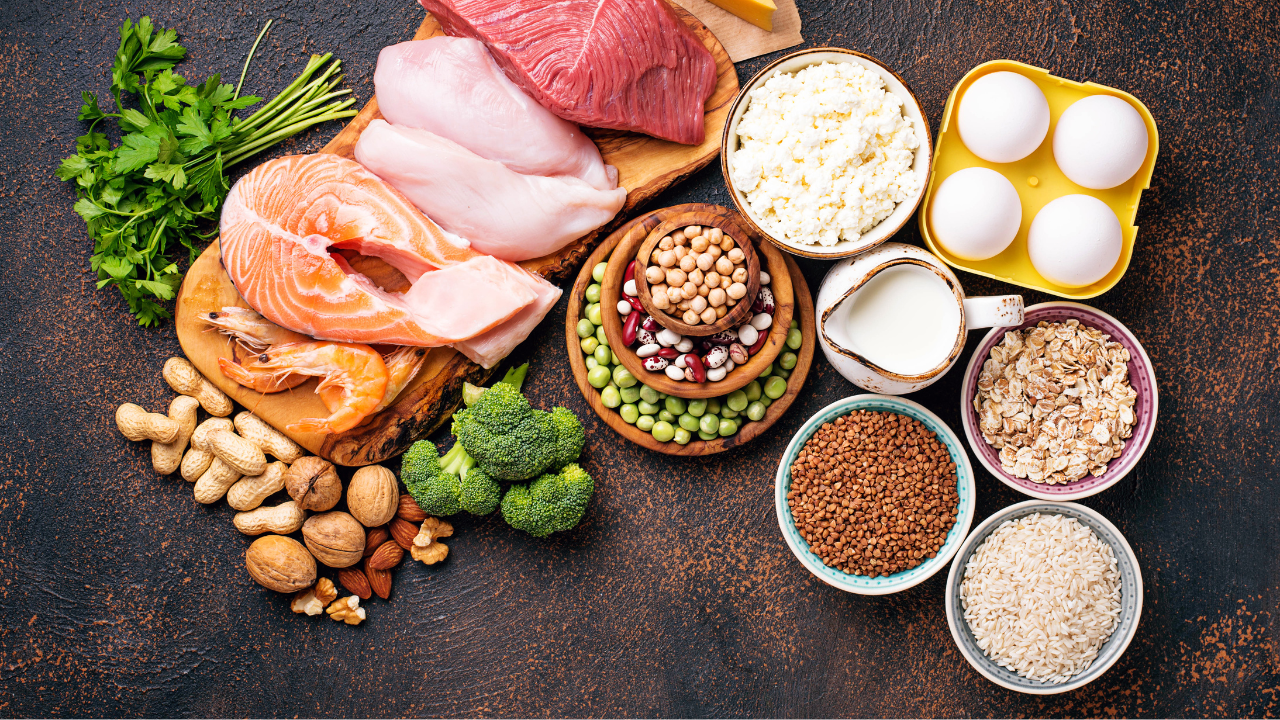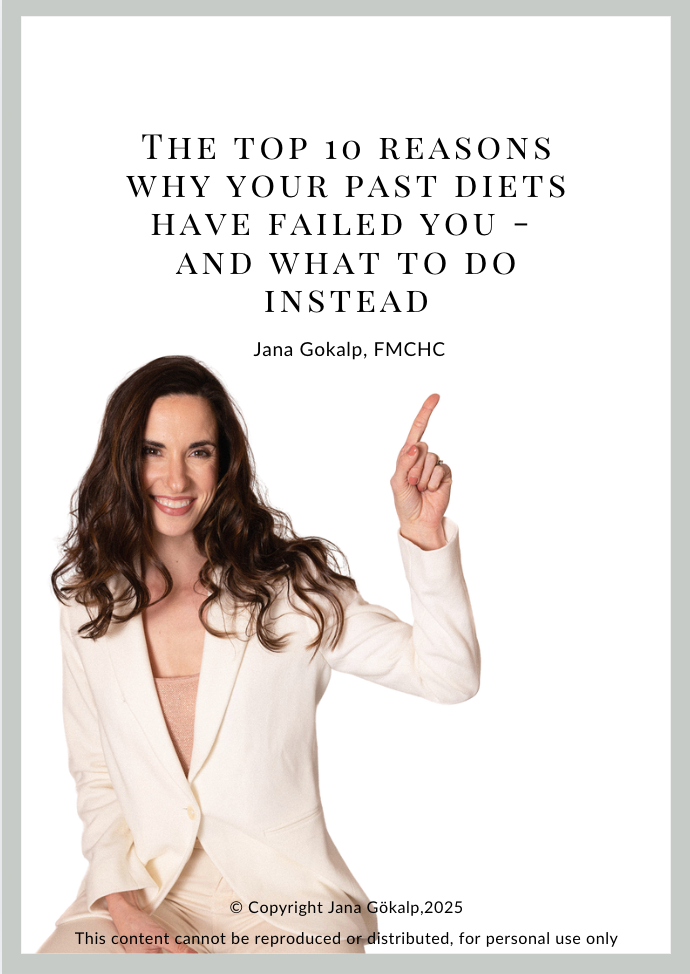Why You’re Probably Not Eating Enough Protein (and How It’s Slowing Your Progress)

If you're trying to lose fat and build a healthier body, there's a strong chance you're not eating enough protein. Despite being one of the most vital macronutrients, protein is often under-prioritised, especially by women. The truth? A low-protein diet may be the hidden reason you're feeling hungry, tired, and stuck in your fat-loss journey.
Why Protein Matters for Fat Loss
Leading experts across the fields of nutrition, functional medicine, and metabolic health consistently emphasise the central role protein plays in sustainable fat loss.
Dr Layne Norton, a respected nutritional scientist, underscores that a higher protein intake enhances satiety and preserves lean muscle mass during a calorie deficit. Similarly, Dr Gabrielle Lyon, known for her "muscle-centric" approach to health, advocates for prioritising protein to support metabolism and hormonal function—especially in women.
Dr Casey Means, co-founder of Levels and a leading voice in metabolic health, highlights protein's ability to stabilise blood sugar and reduce insulin spikes, both of which are essential for unlocking fat loss. Meanwhile, Dr Bill Campbell, exercise science professor and nutrition researcher, notes that participants on higher protein diets consistently show greater fat loss and better muscle retention, even when calories are controlled.
Their collective wisdom reinforces that protein isn’t just helpful for fat loss, it’s essential.
Protein isn’t just for bodybuilders and athletes. It’s foundational for anyone wanting to lose fat and keep it off. Here's why:
-
Preserves lean muscle mass during a calorie deficit
-
Increases satiety, helping reduce overall calorie intake
-
Boosts metabolism via the thermic effect of food (TEF)
-
Supports hormone production, enzyme function, and immune health
Let’s unpack each of these benefits.
1. The Thermogenic Advantage
Protein has the highest thermic effect of all macronutrients, meaning your body burns more calories digesting it. Around 20-30% of protein calories are used just to metabolise it, compared to 5-10% for carbohydrates and 0-3% for fats (Westerterp, 2004). This metabolic “cost” can provide a slight edge when trying to create a calorie deficit.
2. Protein Curbs Hunger
Protein helps you feel fuller for longer. It regulates hunger hormones like ghrelin and peptide YY, making it easier to manage cravings and avoid overeating (Leidy et al., 2011). This makes it one of the most powerful tools for sustainable fat loss.
3. It Protects Muscle While You Lose Fat
When you’re losing weight, especially quickly or without resistance training, there’s a risk of losing muscle as well as fat. Protein intake helps preserve lean mass, which is critical for maintaining a healthy metabolism. Muscle burns more calories at rest, and losing it can slow your metabolic rate significantly. This means, you will lose total weight but need to continue to adjust your caloric allowance down to keep losing or you will hit a weight loss plateau- not ideal.
4. Beyond Fat Loss: Why Else You Need Protein
Protein supports a wide range of functions beyond just body composition:
-
It forms the building blocks of hormones, enzymes, and neurotransmitters
-
It supports detoxification processes in the liver
-
It aids in wound healing and skin regeneration
-
It plays a role in immune defence through antibody production
How Much Protein Do You Really Need?
Most women trying to loose fat should aim for 1.6 to 2.2 grams of protein per kilogram of body weight per day, or roughly 0.7 to 1 gram per pound (Morton et al., 2018; Phillips & Van Loon, 2011; Pasiakos et al., 2015).
For example, a woman weighing 70kg would need around 112-154g of protein daily for optimal fat loss and muscle maintenance.
The Protein Gap: Actual Intake vs. Optimal Needs
Despite the well-documented benefits of adequate protein consumption for fat loss and overall health, many women fall short of recommended intake levels.
In the UK for example, the average daily protein intake for women aged 19 to 64 is approximately 64 grams. This figure is below the optimal range suggested for fat loss and muscle maintenance.
Similarly, in the United States, data from the National Health and Nutrition Examination Survey (NHANES) 2013–2014 indicates that women aged 20 and older consume an average of 69.8 grams of protein per day. While this intake exceeds the Recommended Dietary Allowance (RDA) of 46 grams per day, it still falls short of the higher protein levels associated with optimal fat loss and muscle preservation.
Myth: High Protein Intake Damages Your Kidneys
This claim persists despite being thoroughly debunked in healthy individuals. Research shows that high protein intake does not impair kidney function in people with normal kidney health (Poortmans & Dellalieux, 2000). That said, individuals with existing kidney conditions should consult their healthcare provider before increasing protein intake significantly.
But Don’t Overdo It Either
More isn't always better. If protein intake exceeds your body’s needs and isn’t used for tissue repair, hormone production, or energy, it can be converted into glucose via gluconeogenesis. Excess glucose can then be stored as fat if not used. Balance is key.
What About Carbs and Fats?
Once protein needs are met, the remaining calories in your diet should come from a balance of carbohydrates and fats. There is no one-size-fits-all approach here.
Some women thrive on higher carbs to support thyroid function and intense training. Others feel better with more fat for hormonal balance and blood sugar stability. The best macro split is the one that:
-
Supports your energy and mood
-
Keeps cravings in check
-
Aligns with your activity level
-
Feels sustainable long-term
Individualising Your Macros
To truly personalise your macronutrient breakdown, consider:
-
Body composition goals (fat loss vs. muscle gain)
-
Activity level and type (sedentary vs. strength-focused)
-
Hormonal status (e.g. perimenopause, PCOS, hypothyroidism)
-
Digestive capacity and preferences
-
Relationship with food and eating behaviours
Working with a Functional Medicine Health Coach can help tailor your approach based on your physiology, preferences, and goals- not just generalised rules.
Final Thoughts
Protein is a powerful, often under-utilised tool in fat loss. From boosting metabolism to curbing cravings, preserving muscle to regulating hormones, it plays a far bigger role than most women realise. Start by ensuring you're getting enough - and build your nutrition strategy from there.
References
-
Westerterp, K. R. (2004). "Diet induced thermogenesis." Nutrition & Metabolism, 1(1), 5. https://www.ncbi.nlm.nih.gov/pmc/articles/PMC524030/
-
Leidy, H. J., et al. (2011). "Higher protein intake preserves lean mass and satiety with weight loss." The American Journal of Clinical Nutrition, 94(3), 684–691. https://pubmed.ncbi.nlm.nih.gov/21775530/
-
Morton, R. W., et al. (2018). "A systematic review, meta-analysis and meta-regression of the effect of protein supplementation on resistance training-induced gains in muscle mass and strength in healthy adults." British Journal of Sports Medicine, 52(6), 376–384. https://pubmed.ncbi.nlm.nih.gov/28698222/
-
Phillips, S. M., & Van Loon, L. J. (2011). "Dietary protein for athletes: from requirements to metabolic advantage." Applied Physiology, Nutrition, and Metabolism, 36(5), 647–654. https://pubmed.ncbi.nlm.nih.gov/21967675/
-
Pasiakos, S. M., et al. (2015). "Protein requirements and muscle mass/strength changes during intensive training in weight-stable individuals." The FASEB Journal, 29(1_supplement), 584.3. https://www.fasebj.org/doi/abs/10.1096/fasebj.29.1_supplement.584.3
-
Poortmans, J. R., & Dellalieux, O. (2000). "Do regular high protein diets have potential health risks on kidney function in athletes?" International Journal of Sport Nutrition and Exercise Metabolism, 10(1), 28–38. https://pubmed.ncbi.nlm.nih.gov/10722779/
- National Health and Nutrition Examination Survey (NHANES) 2013–2014. "Average protein consumption for women ages 20 and older." U.S. Department of Agriculture, Agricultural Research Service. https://www.cdc.gov/nchs/nhanes/index.htm
Fat loss is possible - especially for you
I see you! Mayve you've lost many battles with food, you are frustrated and beat yourself up every time you fall of "the plan". You are not alone! There is another way to approach weight loss: it's holistic, it goes deep, it changes your life. Are you ready?
Bringing Real Talk on Holistic Weight Loss to You
Forget the spam - I am bringing you the real deal. Scientific reviews on weight loss, smart tools to stay on track and motivational energy to reclaim "you".
No BS, no spam. I'll never sell your information, for any reason.






